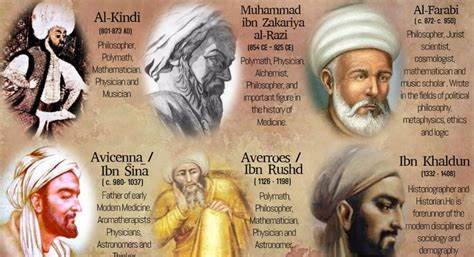The Rich Literary Traditions of Languages: A Comparative Exploration
Introduction
Persian/Farsi literature is renowned for its profound poetry, epic tales, and philosophical depth. Yet, Persian is not the only language with a rich literary tradition. Around the world, many languages boast extensive and influential literary histories, each contributing uniquely to global culture. This article explores some of these languages, highlighting their literary achievements and cultural impact.
Arabic Literature: The Legacy of the Golden Age
Arabic literature, with its roots in the pre-Islamic era, flourished during the Islamic Golden Age. This period produced timeless works in poetry, prose, and philosophy. The "One Thousand and One Nights," an enchanting collection of Middle Eastern folktales, is a cornerstone of Arabic literary tradition. The classical poetry of Al-Mutanabbi and the philosophical treatises of Ibn Rushd are just a few examples of the rich literary output in Arabic.
Chinese Literature: An Ancient Treasure
Chinese literature dates back to ancient times, with texts like "The Book of Songs" and Confucian classics forming the foundation. Over centuries, Chinese authors have produced a vast array of poetry, novels, and philosophical works. The Tang Dynasty (618-907 AD) is particularly celebrated for its poetry, with poets like Li Bai and Du Fu leaving an indelible mark. The Ming Dynasty's (1368-1644 AD) "Journey to the West" and "Dream of the Red Chamber" are monumental novels that continue to influence global literature.
Sanskrit Literature: The Heart of Indian Culture
Sanskrit, the ancient language of India, holds a central place in the country's literary tradition. The Vedas, Upanishads, and epics like the Mahabharata and Ramayana are foundational texts, rich in mythological and philosophical content. Sanskrit poetry, drama, and philosophical treatises have shaped Indian culture and thought for millennia. Works by Kalidasa, such as "Shakuntala," are revered for their lyrical beauty and narrative depth.
Greek Literature: The Birth of Western Thought
Greek literature has profoundly influenced Western culture and thought. Classical Greek texts, including Homer's "Iliad" and "Odyssey," remain central to literary studies. Greek playwrights like Sophocles and Aristophanes, along with philosophers such as Plato and Aristotle, have left a legacy of drama, philosophy, and poetic expression that continues to resonate today.
Japanese Literature: From Haiku to Novels
Japanese literature spans from the ancient to the modern, characterized by its unique aesthetic and emotional depth. The Heian period (794-1185 AD) produced the "Tale of Genji" by Murasaki Shikibu, considered the world's first novel. Japanese poetry, particularly the haiku form perfected by Matsuo Basho, captures profound emotions in a few lines. Modern Japanese authors like Haruki Murakami continue to gain international acclaim.
Russian Literature: Depth and Drama
Russian literature is known for its profound psychological insights and complex characters. The 19th century produced literary giants like Leo Tolstoy, Fyodor Dostoevsky, and Anton Chekhov. Works such as "War and Peace," "Crime and Punishment," and "The Cherry Orchard" explore themes of morality, society, and the human condition, cementing Russian literature's place in the global literary canon.
French Literature: Elegance and Enlightenment
French literature has a rich history of poetry, drama, and prose. Medieval works like "The Song of Roland" and the chivalric romances of Chrétien de Troyes laid the foundation. The Enlightenment era brought forth writers like Voltaire and Rousseau, whose works challenged societal norms and inspired revolutionary thought. The 19th and 20th centuries saw the rise of novelists like Victor Hugo, Gustave Flaubert, and Marcel Proust, whose works continue to be celebrated for their literary artistry.
Spanish Literature: Passion and Poetry
Spanish literature has a vibrant tradition, marked by works that reflect the country's diverse cultural heritage. The medieval epic "El Cid" and the poetic verses of the Golden Age, represented by figures like Garcilaso de la Vega, are significant. Miguel de Cervantes' "Don Quixote," often considered the first modern novel, has had a lasting impact on global literature. The 20th century brought poets like Federico García Lorca, whose works express deep emotion and political commentary.
Conclusion
Languages around the world have rich literary traditions that mirror the cultural, philosophical, and historical experiences of their speakers. From the epic poetry of Persian and the philosophical treatises of Sanskrit to the novels of Russian and the dramas of Greek, each language offers a unique window into the human experience. These literary treasures not only enrich our understanding of different cultures but also connect us through the universal themes of love, struggle, and aspiration. As we explore these traditions, we celebrate the diversity and depth of human creativity across time and space. The rich legacy of these literary traditions continues to inspire and influence, offering timeless insights into the human condition.









